REciprocal maieutic Approach pathways enhancing Critical Thinking - REACT
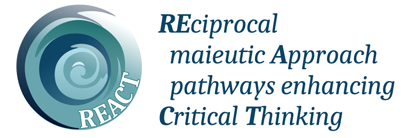
The general objective of REACT is to developing and implementing an innovative method and related practices to foster inclusive education and promote common values. To create and maintain a cohesive EU society, an inclusive and high-quality education and training, as well as the EU dimension of teaching are paramount. Inclusive education is an effective means to avoid discrimination and exclusion, promote tolerance and tear down stereotypes.
One of the most researched methods that overcomes passive teaching-learning binary and that has been found to effectively promote inclusion in education is cooperative learning. There are many variations of cooperative learning but they tend to share some fixed elements: positive interdependence, individual and group accountability, promote interaction, appropriate use of social skills and group processing. To reach the goal, a mixed methodology will be developed between Montessori’s features and Danilo Dolci’s Reciprocal Maieutic Approach, leading to the activation of RM laboratories enhancing critical thinking annd the development of an ability to see the world in a more open way for students aged 10-15 years old, teachers and parents, quite often excluded from this kind of activities.
The specific objective of REACT is to enhance critical thinking and media literacy among learners, parents and educational staff. Critical thinking is a mental habit and to support the creation of the related skills requires students to think about their thinking and about improving the process, it requires students to use higher-order thinking skills. Therefore, critical thinking is a product of education, training and practice. The dismissal of stereotypes thanks to the attitude to critically thinking is a cognitive process that needs to be consciously activated by the individual or that can be represented as the result of a specific educative process, facilitated by the teachers in school and supported by an informal approach in the Community of educators. That’s why REACT proposed methodology will act at school level but reflecting its results also to the community level, enhancing the acquisition of critical thinking skills through Reciprocal Maieutic Laboratories development and directly working on the dismissal of stereotypes as results of the cognitive process not only for students but also, and at the same time, for teachers and parents thus configuring an innovative pedagogy strategy.
OUTPUTS
Analysis of the status quo and strategic perspectives for the development of RMA pathways in lower and upper middle schools. A Report to summarize, condense, and —with the aim of comparing trends and developments— frame the status quo and the strategic perspectives with regard to the application of the Reciprocal Maieutic Approach (RMA), enriched with the ideas of Maria Montessori’s Method in school context, with the aim of providing details and insights for a better understanding of the challenges and opportunities.The research will address also what school-based practices and programs are most effective, for whom and under what circumstances.
National and European Biographic Report. This Report will comprehend the National versions and a synthesis comparative European report. It represents a biographic work and will consider the evaluation of the social impact in terms of social pedagogy and pedagogy of the community. The expected results, analyzing findings collected thanks to the delivering of a biographic questionnaire to a sample of students, are in term of rethinking the relationships within communities and across the narration and comparison of perceived meanings as a media to promote the enhancing of critical thinking as a way to reciprocal understanding.
REACT Model and Manual. The Manual will include the
- Guidelines for RM laboratories
- Piloting of the laboratories in schools
- Policy Guidance for further Sustainability and Exploitation of REACT Model
- Policy Recommendations
- REACT Ambassadors network
Guidelines for RM laboratories. Guidelines will be produced at the end of the pilot experience held at local level with a learning group of RM laboratories potential coordinator. Guidelines will serve for a further smooth and effective development of Reciprocal Maieutic laboratories, reporting on how to rise critical thinking skills acquisition in school context through dialogic learning as well as knowing techniques, behaviours and attitudes.
Piloting of the laboratories in schools. A final report on the piloting will be drafted for analysing the results gained. The piloting phase will be organised in Italy (Umbria and Sicily regions), Greece, Bulgaria and Spain within the involved schools that will be invited to discuss and implement the RM Model and approach.
Policy Guidance for further Sustainability and Exploitation of REACT Model. The Policy Guidance is intended as a primary input for the policy development framework coming from the monitoring and evaluation phase. The document will be based on some suggestions to guide policy makers, educational public authorities in the implementation of the programme into other schools and contexts.
Policy Recommendations. Support for policy reform will be a guidance for further sustainability and exploitation od the project, giving evidence of the effectiveness of the programme other than suggestions on the encapsulation of the RM model, focused on dialogic learning approach, in the CPD programmes in participating countries.
REACT Ambassadors network. The Ambassadors network of REACT will be constituted at an early stage of the project and will me maintained alive and efficient in order to further implement public and restricted activities keeping the awareness raised on the topic and continuing in the feedbacks collection to prepare the ground also for further educational initiatives.
Alongside those core outputs and outcomes, REACT relies on a solid Quality Assurance Plan and a Dissemination set of activities already set up at the application stage that will be constantly updated during the project’s lifespan.
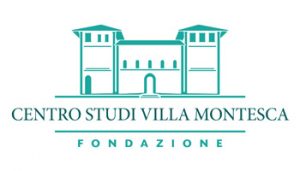
The “Hallgarten-Franchetti Centro Studi Villa Montesca” foundation (FCSVM) has a vast experience in managing interdisciplinary project teams composed of researchers from universities and other educational organisations. It has an important role at regional, national and European level in the development and promotion of lifelong learning as a tool for improving and strengthening social and work opportunities following the main recommendations of the EU Commission “It is never too late to learn” and “It is always a good time to learn”. Based on one of the main objectives of the Foundation, which is to disseminate the Maria Montessori teaching approach in order to face the multiculturalism, the FCSVM is the promoter of the testing of a RM model enriched and specified by Montessori’s features on learning environment rebuilding and observation approach. FCSVM is in strict collaboration with the schools of the territory, collaborates with schools in general for applying innovative approaches on teachers and students of all ages; FCSVM develops training projects for young people, and also develop initiatives with persons with disadvantaged backgrounds (as the unemployed, immigrant etc.). The FCSVM have a strong connection with the local public local authorities (Umbria and Tuscany Regions) that already showed their interest in applying and disseminate the project results.
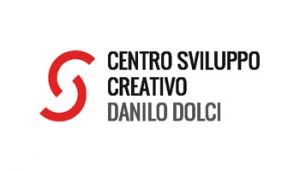
CSC “Danilo Dolci” Centre is inspired and based on the Reciprocal Maieutic Approach, the core pedagogical methodology of research and self-analysis useful to develop creativity, critical thinking, communication skills, relational skills, cooperation and active participation. The RMA was developed by Danilo Dolci from the Socratic concept of Maieutic: what differentiates both concepts is the fact that Socrates’ Maieutic was unidirectional, while for Danilo Dolci the concept of knowledge comes from experience and a reciprocal relationship is necessary. RMA creates the safe context for people to express themselves, to discover, to be creative, to learn relational and communicational competencies, to feel valorised in their self as a human creature. The experience of CSC and the heritage of Danilo Dolci will be the basis for the definition of the RM model and its re-shaping in order to be adapted to lower and upper middle school context as well as enriched with Montessori’s features. Moreover, CSC “Danilo Dolci” can count on a strong network at local level of schools, local immigration centres, local and regional institutions, associations and private companies. CSC successfully operated for more than ten years at local and international levels developing projects in the field of innovation in education for the integration of disadvantaged target groups such as migrants and refugees using art, creativity, non-formal methods, Music, Community Theatre and other drama-therapeutic approaches as well as Didactic of Emotions for ESL prevention.
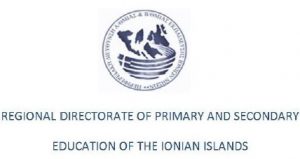
Regional Directorate Education (RDE) consists of 356 schools from 4 to 18 years old. Numbers more than 4.200 teachers and more than 28.000 students in the whole district. The RDE focuses both on administrational and educational activities that will help the region improve the training provided. They have carried out several educational and cultural activities, seminars, workshops and lectures and one of their main goals is to pilot new methodologies thus improving the education provided. Being a border region in Greece, their schools have specific characteristics that they are called upon to deal with. In particular, many schools have problems with bullying. Due to the tourist nature of our islands and our proximity to Albania, they have an increased number of immigrants from European countries but mainly from Albania with the phenomenon of marginalization often occurring in these schools. Although being a well-known touristic destination, the schools of our region and the people around them, have not yet adopted the concept of European association and cooperation leading to a great disadvantage in aspects of modern education in adaptation of new technics that involve more and reduce the phenomena of exclusion, intimidation and student leakage.
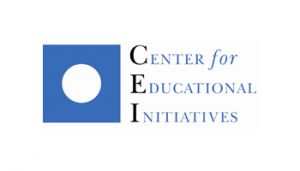
CEI is a non-governmental, non-profit association aimed at enhancing innovative educational initiatives and facilitating educational reforms in the Bulgarian educational system. The main objectives of the organization are to encourage co-operation in the field of education on local, regional and European level, to implement new teaching methods, mainly based on ICT, and to enhance co-operation between public institutions, educational and scientific organizations and NGOs at all levels via professional networks and platforms.
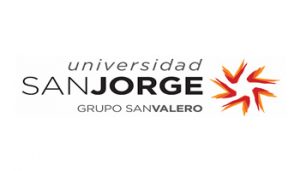 FUSJ in the Foundation related to the San Jorge University. The FUSJ has 15 research groups, 7 co-financed and recognized by the Regional Government. USJ is certified in ISO 9001, ISO 14001 and EMAS. San Jorge University is part of a group of 5 educational entities (San Valero Foundation Group) dedicated exclusively to training at different levels: secondary and vocational training – Fundacion San Valero; professional training and vocational training – Fundosva Dominican Foundation (aimed at young people without resources in Dominican Republic, with 3 training centres) and CPA Saldui; higher education and different modalities (on-line, in presence, dual) – Fundacion Universidad San jorge; and on-line training (vocational and professional) – SEAS Estudios Abiertos. The FUSJ’s monitoring supervision system follows the guidelines provided by the European Commission: “Quality of Public Administration: Toolbox for Practitioners” (February 2015). It is a systematic process of collecting data, in order to track outputs, results and impacts throughout the preparation, application of an intervention, and to inform management and partners on progress and performance.
FUSJ in the Foundation related to the San Jorge University. The FUSJ has 15 research groups, 7 co-financed and recognized by the Regional Government. USJ is certified in ISO 9001, ISO 14001 and EMAS. San Jorge University is part of a group of 5 educational entities (San Valero Foundation Group) dedicated exclusively to training at different levels: secondary and vocational training – Fundacion San Valero; professional training and vocational training – Fundosva Dominican Foundation (aimed at young people without resources in Dominican Republic, with 3 training centres) and CPA Saldui; higher education and different modalities (on-line, in presence, dual) – Fundacion Universidad San jorge; and on-line training (vocational and professional) – SEAS Estudios Abiertos. The FUSJ’s monitoring supervision system follows the guidelines provided by the European Commission: “Quality of Public Administration: Toolbox for Practitioners” (February 2015). It is a systematic process of collecting data, in order to track outputs, results and impacts throughout the preparation, application of an intervention, and to inform management and partners on progress and performance.
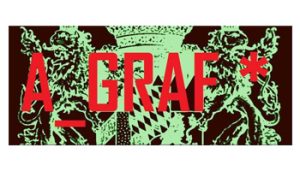
AGRAF gUG (haftungsbeschränkt) is a spin-off of Saarland University. The non-profit organisation started work in 2011 with a project in the context of the EU-Commission’s Grundtvig program. Before, we participated in projects mainly at Saarland University, from the Grundtvig, Comenius, Sokrates, Erasmus, and Interreg programs of the EU commission, and in projects funded by the German Federal Ministry of Education and Science, the Joint Federal and Government Commission for Educational Planning and Research Promotion, the German-French Youth Council, SR broadcasting station, and the German Research Foundation.
The focus of our work always lies in media, which are examined with regard to their specific use. A fundamentally important field of application, both good and problematic, is the education sector. Thus, it is inevitable that questions regarding a meaningful and adequate use of media in the context of learning processes, but also regarding personality development, are at the centre of our work, our projects and publications. Above all, it is important to understand how questioning and research-based learning, as well as ethical and personality-building effects can be realised in our media-dominated world. It is clear that traditional teaching methods are reaching their limits, if they were ever as successful as believed at the times. Conversely, it is not always clear how questioning, researching, ethical and personality-building learning can and should be implemented through media. Thus, even constructivist learning methods can reach their limits in view of the filter bubbles that social media create. In any case, these are important and relevant questions that the project addresses and that AGRAF wants to accompany with its expertise.


